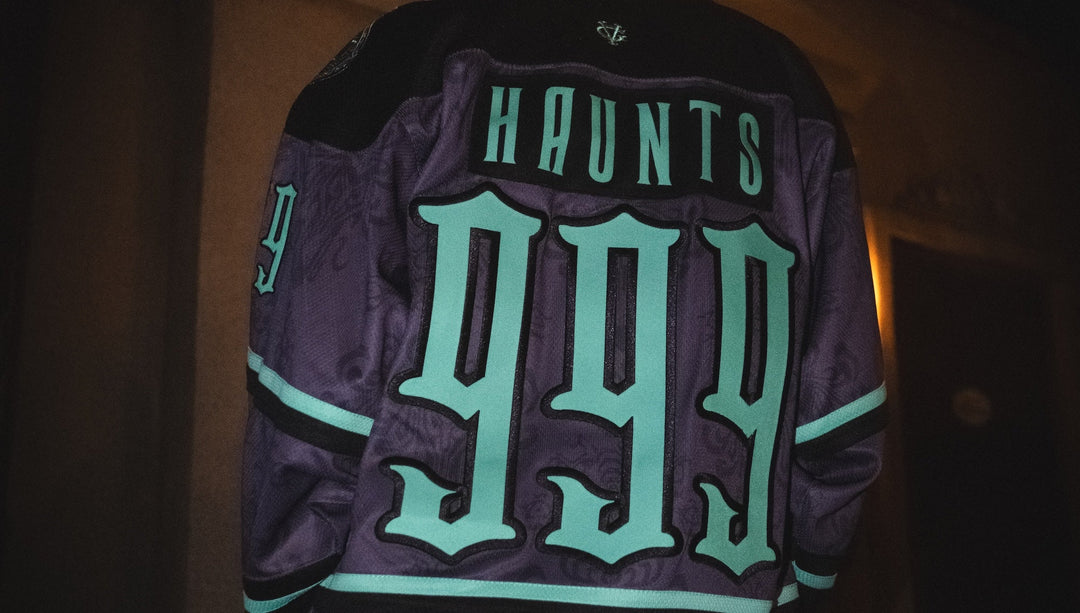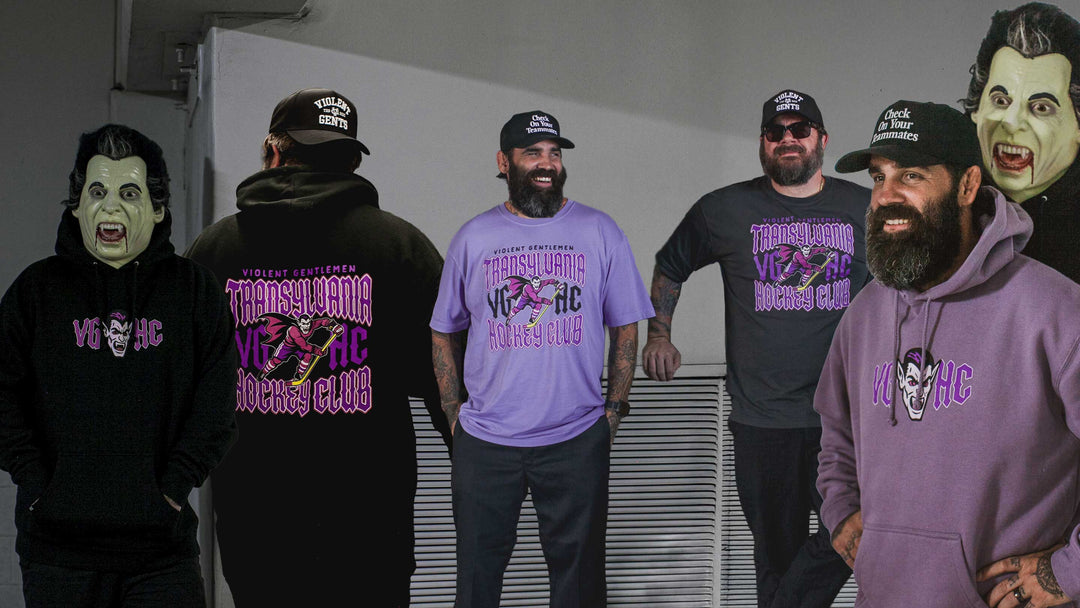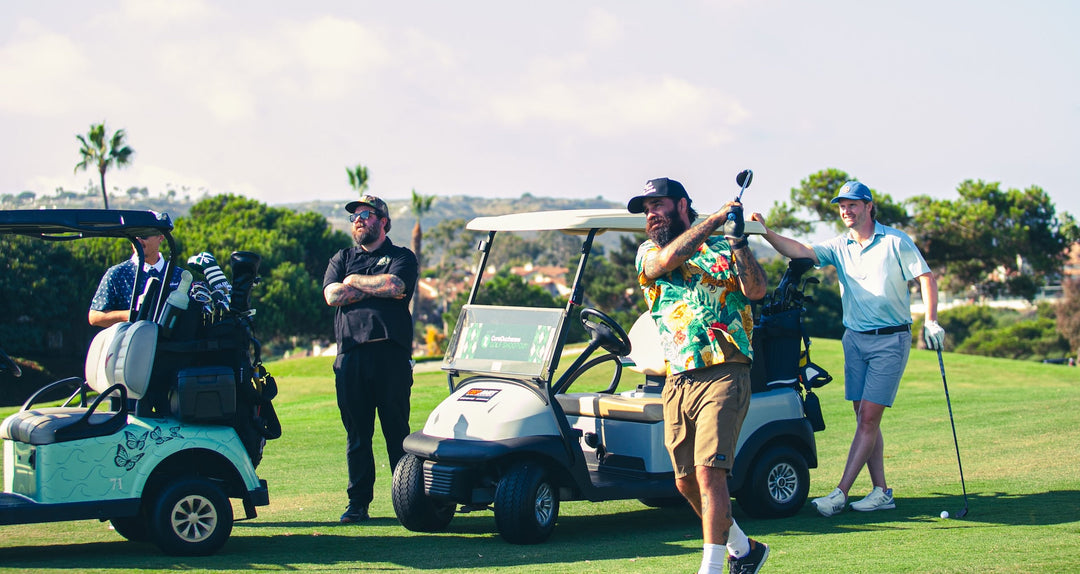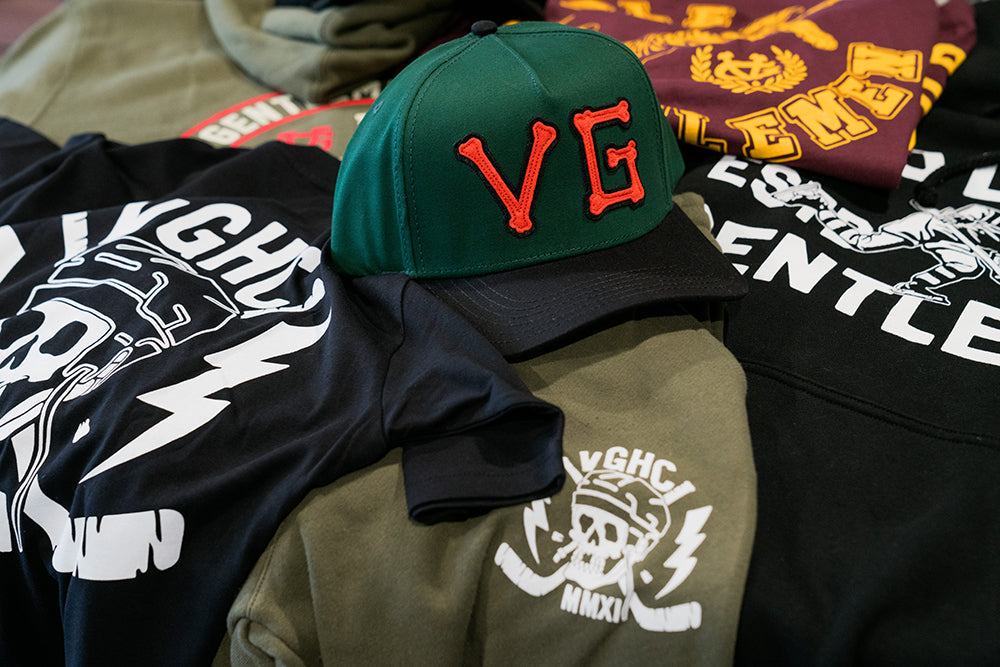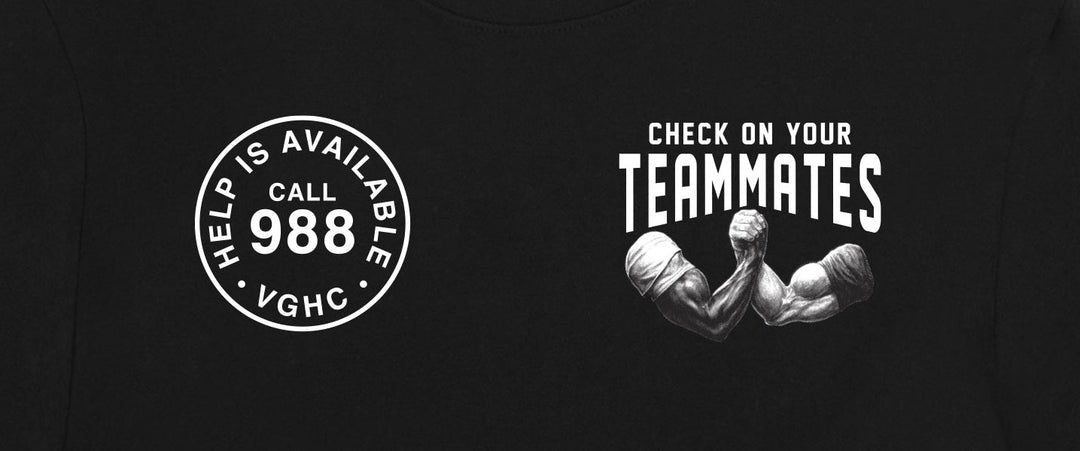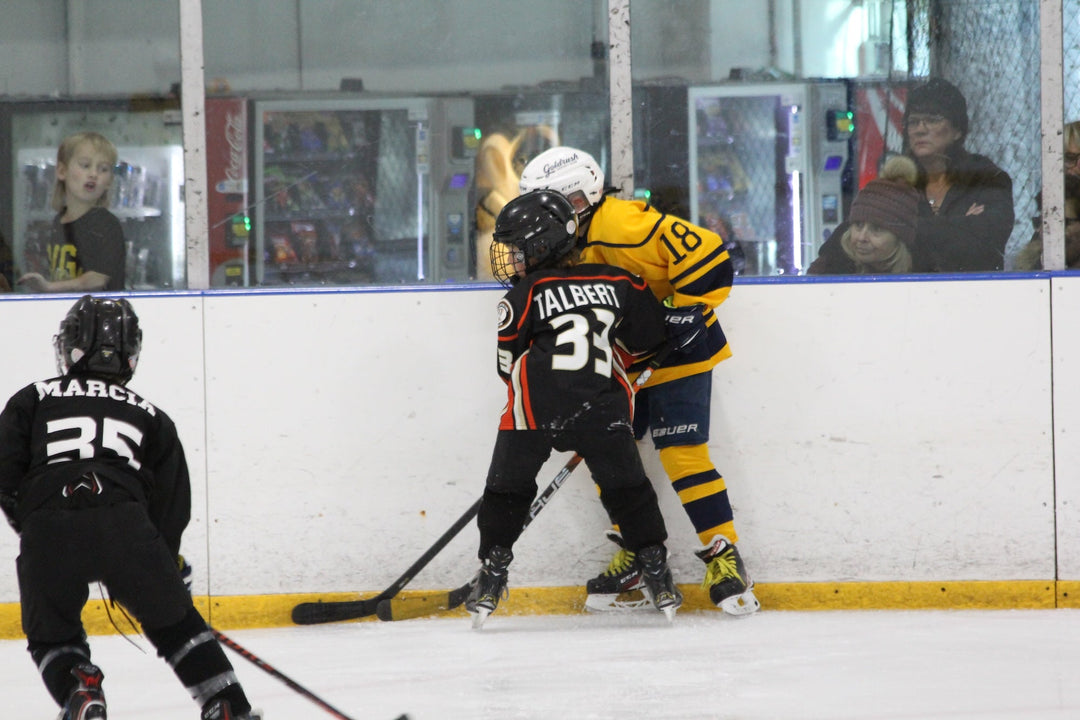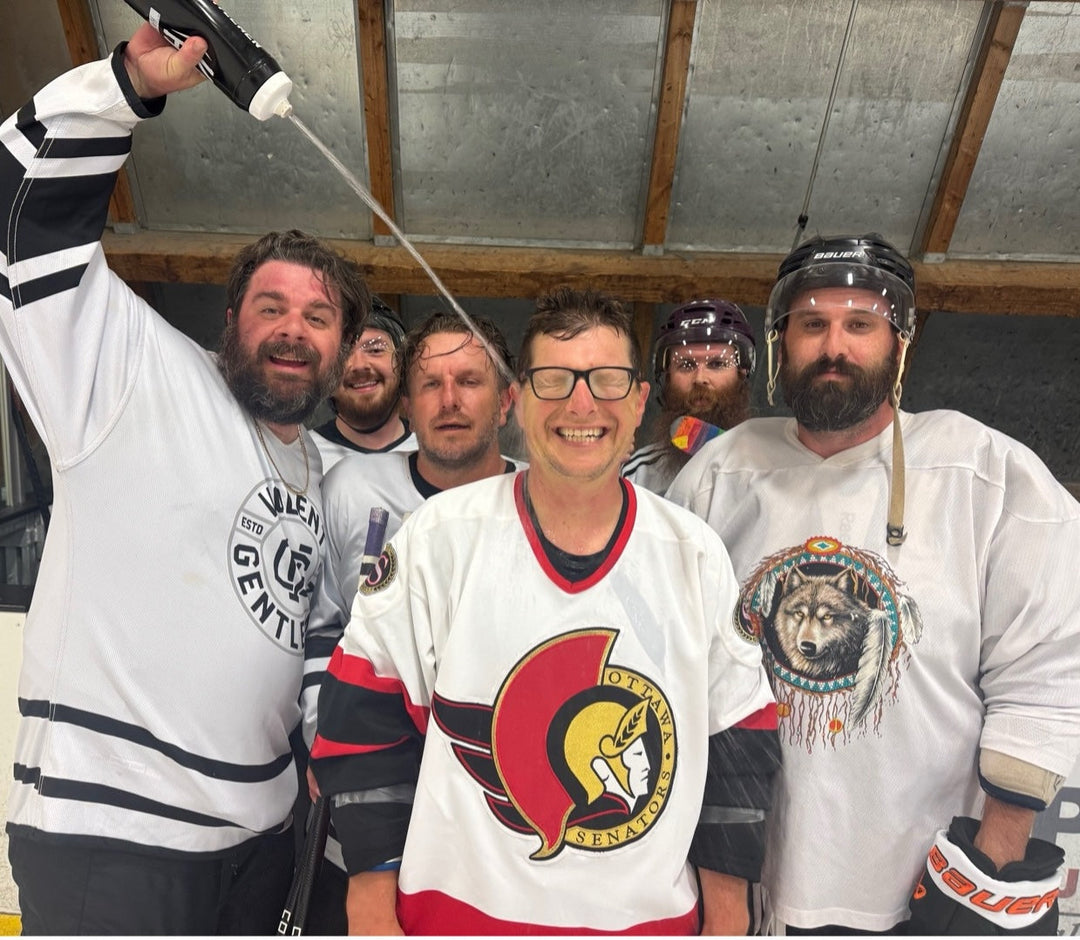Tales of Violent Gentlemen: Josh Manson

Josh Manson grew up in Prince Albert, Saskatchewan, a long way from Orange County. Known as the “Gateway to the North,” it’s a small community that’s nestled along the North Saskatchewan River. Manson, now a defenseman for the Anaheim Ducks, fondly recalls his time in Prince Albert, particularly the outdoor activities he did as a youngster. “I actually grew up snowboarding until I had to stop doing that because of hockey,” he told Violent Gentlemen.
Besides hitting the slopes, Manson spent his time snowmobiling and ice fishing during the winter and soaking up the sun on the lake in the summer. It sounds like a typical Canadian upbringing, with one exception. Josh’s father was an NHL hockey player. Dave Manson was a big, hard-hitting defenseman who patrolled the blueline for teams such as the Chicago Blackhawks and the Edmonton Oilers. Over the course of his career, Dave punished opponents and racked up nearly 2,800 penalty minutes.
Today, Josh is following in his father’s footsteps but he’s looking to carve his own path. While he certainly inherited his dad’s physical characteristics and style of play – he had the second most hits on the Ducks last season – he’s eager to make a name for himself. After having a career year in Anaheim last season, Manson’s looking to build upon that success and take on a bigger role with the club.
Before Manson begins his fourth season with the Ducks, Violent Gents caught up with him to talk about his expectations for the year, his most memorable fight, and how to throw the perfect hit.
Violent Gentlemen: Your dad Dave was a pretty formidable NHL defenseman in his day, how much have you modelled your game from your old man?
Josh Manson: I don’t think I modelled my game from him on purpose. If I could be a skilled guy, I’d love to be a skilled guy, but I think it was just inherited. The way he played kind of just came naturally to me. I was actually a forward when I was younger, I played rugged but when I switched to defense everything just seemed to come easier. He never pushed me in any direction and he’s always been a crutch for when I need him or have any questions. But he never pushed anything on me, which I commend him a lot for.
VG: Given that your father played in the NHL, it’s natural he would have influenced the way you approached the game, but who else did you aspire to play like when you were younger?
JM: You know what’s funny? I never did. I never really took to hockey that much until I moved back to Prince Albert. Even then, I wasn’t the biggest fan of hockey or the NHL. Because my Dad played it was so much different, it’s hard to explain. I think there’s two types of people when you’re the son of someone who played in the NHL. You either grew up around it and loved it and you lived for it, but I think I was on the flip side of it. I was never a fan and I never had a favorite team. To me, going to the rink with my dad was like going to work. You did the fun things that came along with it, but that was it.
VG: With fellow blueliners Sami Vatanen and Hampus Lindholm on the shelf to start the year, the Ducks will likely be looking for you to take an even bigger role. How will you make the most of that opportunity?
JM: It’s a tough loss having those guys go down, but to be honest with you, I don’t think I really need to change too much. It’s nice to get those extra minutes, but sometimes you start thinking you have to do more with them, when I don’t think you really need to. I think you just take those minutes and you keep doing what you’re doing. It just looks better on the resume, playing those five extra minutes, but if you’re staying consistent, that’s the main thing. Obviously, it would be nice to contribute on the offensive side a little bit more and if that comes, great, but I’m not going to try and force it. I’m just going to keep doing what I’m doing and as I get the opportunity to play more minutes, I’ll just keep doing that and hope everything falls into place.
VG: What are some of the goals you have for yourself this season?
JM: I think I definitely want to keep building physically. Last season I felt it was one of the most physical seasons that I’ve played and I played in all 82 games, which for me was a huge feat. I’ve had a couple injuries, nothing long-term, but nonetheless, it’s never good to miss games. Last year I got in all 82 and that’s definitely a goal of mine coming into this season, to play in as many games as I can but still keep up that physicality level.
VG: Speaking of physical play, you have 11 regular season fights under your belt, which one sticks out most to you?
JM: It wasn’t regular season, it was during the preseason and I think it’s the ones that is in most fans minds, which was my fight against Milan Lucic.

I really think it was my gateway to the NHL, if I’m being honest. It was a time where I think I stepped up and took some guys by surprise who didn’t think I could handle that kind of task. I’m a little more reserved in the room, so I was able to show them a different part of my game. I was a little quieter when I first came in. Sometimes you see a guy who is maybe a bigger body like me but you never know what he can do and when you can prove you can stand up for a teammate like that, I think it changes the dynamic of a player. It caught guys off guard. That was definitely my most memorable fight. I commend him [Lucic] for giving it to me, that was kind of my opportunity to get into the league and he didn’t have to fight a guy like me but he did.
VG: You mentioned that the Lucic fight is probably the one that resonates most with fans, but another would probably be when you fought Calgary’s Mark Giordano in the playoffs. Where does that one rank for you?
JM: That was a good one, just sticking up for a teammate. Once again, I commend him [Giordano] for setting up with a guy like me. I don’t think that normally me and him would be caught fighting, so I commend him for that. It’s one of those things that happens in hockey. That’s what I think is so great about the game, as much as people want to take out fighting, it does hold guys accountable.

Giordano’s still got that old school mentality in a way where he stood up for himself after that, where some guys may go and hide. I remember that one but I don’t think it’s as memorable. I think maybe some fans think so because from a fan’s point of view you could see how that one would be an exciting one because of that immediate revenge, payback, and satisfaction, but in my opinion, I definitely think the Lucic one was more important for my career. That one with Giordano was kind of just an old-school hockey moment.
VG: Where do you see fighting heading in today’s NHL?
JM: I think it’s definitely trying to be pushed out a little bit more. You can see in the junior leagues, in my first year there you could as fight as many times up to 10 but now it’s down to if you fight once you’re kicked out of the game. They’re trying to put limits on it in the development leagues. At the NHL level, I still think they’re trying to work out the fighting but I’m hoping it always has a place in hockey.
I think it should always be a part of hockey. It’s part of its history, it’s something that makes hockey unique, and just makes hockey, hockey. When you think of hockey, a lot of people think of the physicality and the fighting that goes along with that. I do hope that it stays in it and I do think it will always stay in it in some way as much as they try to push it out. I don’t think it’s ever going to go back to the level it used to be, but I still think they’ll always be a place for it in hockey.
VG: While fighting isn’t necessarily a huge part of your game, hitting certainly is. Last year, you led all Ducks defenseman with 227 hits. What’s the Josh Manson guide to executing the perfect hit?
JM: I think a lot of hitting is just reading the play. You’ve got to read which way the play is going. Your forwards direct the play and once you read off your forwards, you kind of see them funnel into an area and then it’s just timing; you being in that area the same time as they are.

The big hits come when a guy is not expecting you to be there and that’s when the bigger ones happen. I’ve had a couple on the penalty kill just because players are a little more unassuming, they don’t think a guy is going to step up on the penalty kill as much, and then all of a sudden, you’re there. I think being a good hitter is having the mindset to want to make the hit and not back down, reading the play, and timing it so you’re there at the right time.
VG: As you know, George Parros was recently named the head of the NHL’s Department of Player Safety. If you assumed that position for just one day, what would you do to try to make the game safer?
JM: I think there’s a lot of dirty plays that go unnoticed, but it’s impossible to police them all. I think they’ve done a great job with protecting the vulnerability of a guy when it comes to headshots. In sending a message in that way, I think they’ve done a great job with that. I’d maybe just continue to enforce that as much as I can. I think they’ve done a great job with that so far, but other than that, hockey is hockey. You’re flying at a fast speed and everybody is training so hard now that they’re all big guys. Things are going to happen. You have a split-second to make a decision, things are going to happen and the only thing you can do is try to deter guys as much as you can from doing it.
VG: Speaking of George, he had the opportunity flex his acting chops in Goon: Last of the Enforcers. What’s your favorite hockey movie?
JM: I love Slap Shot, it’s a classic. I’ve watched Goon and I loved it. I haven’t seen the second one yet and I’ve got to see it, but I loved Goon when I first watched it. It was such a good story. It almost hit home, not to that extent, but the great guy that’s super tough, I love to see guys like that. So, that’s definitely one of my favorites.
VG: Hockey nicknames were pretty original back in the day. For example, Alf Pike was called “the Embalmer” because he was a licensed mortician in the offseason. Most of the monikers we hear today are usually short forms, but my understanding is that NHL players still give each other some pretty creative nicknames behind closed doors. What’s the best nickname in the Ducks’ dressing room that you can tell us about?
JM: I would give it to Nick Ritchie. We call him “Big Country.” I don’t know if I want to give you the origin of it or where it comes from but a lot of guys call him that. I think that’s the best one we have.
VG: The blog Anaheim Calling wants to know why you picked No. 42, and does it hold any significance for you?
JM: Actually, that’s funny. I was thinking of switching my number this year and I kind of got convinced by my family and the people around me just to stick with it. How I got it was just through training camp. You come in and the team gives you a number. It was my rookie number and as I played with it, I never really wanted to ask to change it. I’m not one of those guys that puts a huge significance on it, so I didn’t want to ruffle any feathers. So, I just kind of stuck with it. Now it’s been so long, that I’ve just tried to make it my own. Usually, I would go for the low numbers. In college, I was three. When my Dad played, he started out with that number, so obviously it held some importance in my heart. At the end of the day, I think I just wanted to make my own path and 42 is just a different number in my mind and it’s what I’ve had for three years now. I’ll just continue to make it my own.
VG: The final round of questions come from some fans on Twitter. When you’re not at the rink, Vampirra aka @Raakel_17 wants to know what’s your favorite thing to do in So-Cal?
JM: I love golf. If I could, I’d be on the golf course every day. I’ve been spending a lot more time at the beach lately. The beach is awesome, it’s so relaxing. You leave the rink and you’ve got the whole afternoon to do whatever you want, so you go lay down at the beach for a while and just regenerate. We’re extremely fortunate to be able to play on the west coast and go to the beach. I think that’s definitely the best part. There’s a lot of places in the league where you can’t get that.
VG: Nutrition is important, so Michael Valleau wants to know what is your favorite meal before a game?
JM: I’ve been on the pasta and chicken for a long, long time. It’s the easiest thing to get. I think if you wanted to make it yourself you could, but I don’t. Pasta and chicken, you can get in on the road or have it at home and it has everything you need. I’m sure that’s what most guys would say. Pretty generic.
VG: Here’s an interesting one for you. @OMistahJ wants to know if you could have a bench-clearing brawl, which team would you choose to face off with?
JM: Probably the team with the least number of fighters on it because that be the easiest. I don’t know who that would be though, everything changes so much. I’m sure the fans want to hear me say L.A., just so we can always get even with them.
VG: One of our regular readers, Ryan aka @OneTimer87, wants to know if you have a go-to style of pre-game music?
JM: I don’t really listen to music before a game. When I’m in the room, I don’t have headphones on. I like to listen to what’s going on around me and listen to the guys before games. But when the music is playing in the room, I like whatever is current.
At this point in the interview, Mike’s wife, Chantal, entered the room. Hearing the conversation taking place, she whispers Despacito.
VG: I think my wife wants to know if you like the song “Despacito?”
JM: A little bit ago I did, but I heard it so much I had to stop listening to it. But when it first came out, I liked it. I can’t lie, I like Bieber.
*Since speaking with Violent Gentlemen, Josh Manson signed a four-year contract extension with the Ducks.




